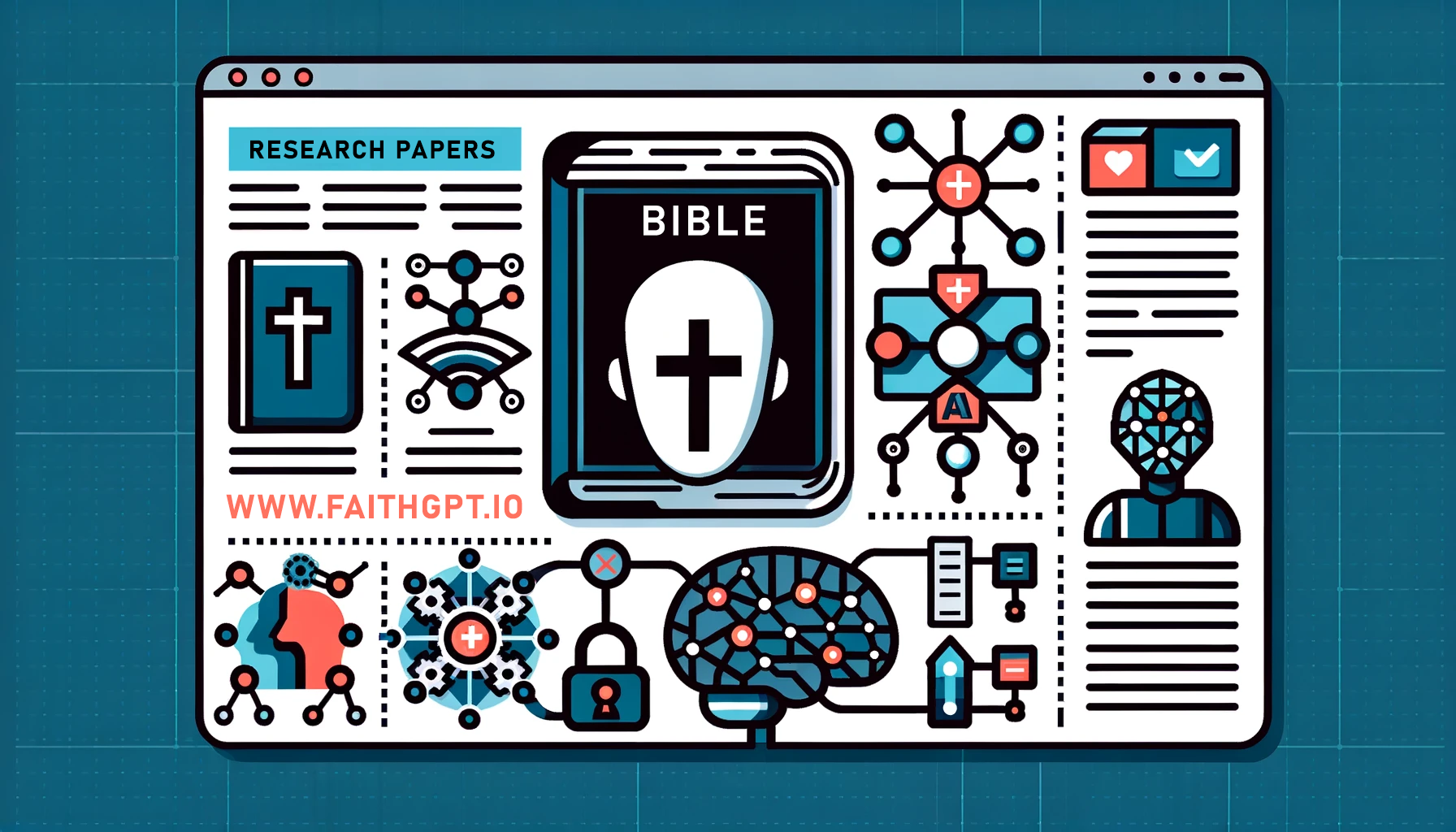Introduction
In a world increasingly driven by digital innovation, even the most sacred and ancient of realms aren't untouched. Imagine discussing the nuances of faith with Augustine of Hippo, or diving deep into theological debates with Martin Luther ; all made possible through the power of Artificial Intelligence. This a reality, where technology and theology converge to offer enriched spiritual experiences. For theological foundations, explore Understanding the Gospel, Does the Bible Mention AI?, and Should Christians Use AI Chatbots?. See also Scripture Insights for theological deepening.
This a reality, where technology and theology converge to offer enriched spiritual experiences.
Breaking Down Theological Barriers
Theology, the study of God and religious belief, has long been the domain of scholars and clergy. But the advent of A.I. is set to democratize access to theological knowledge, making it accessible to all. This is a paradigm shift in how people engage with faith - one could even say, it's a new frontier in religious exploration.
Biblical Context

The Bible, the cornerstone of Christianity, is a rich repository of spiritual wisdom. It contains a treasure trove of figures that have profoundly shaped Christian theology over millennia. From patriarchs like Abraham and Moses, to apostles like Peter and Paul, to our Lord & Saviour Jesus Christ Himself.
Engaging directly with their teachings and experiences through AI could provide illuminating context regarding core aspects of Christianity. Believers can explore first-hand accounts of events like the Exodus or Jesus' ministry that theologians have analyzed for centuries after.
By allowing people to interact conversationally with biblical figures, AI adds unprecedented vibrance and immediacy to scriptural engagement. The technology transports people thousands of years back in time to interact with Christianity's origins.
This offers believers unfiltered access to the source material underlying centuries of scholarly analysis. AI is tearing down the barriers of time and space separating contemporary Christians from their spiritual ancestors.
Historical Context
Christianity, with its rich tapestry of teachings and traditions, owes much to its theological giants. Figures like Thomas Aquinas, known for his synthesis of Aristotelian philosophy with Christian thought, or John Calvin with his role in the Protestant Reformation, have left indelible marks on the faith.
Engaging with these luminaries offers believers an in-depth understanding, connecting them with foundational Christian thought processes.
Thomas Aquinas integrated Aristotelian philosophy with theology. Source
John Calvin was a key figure in the Protestant Reformation. Source
From Augustine's reflections on good and evil, to Aquinas' arguments for God's existence, to Luther's 95 theses challenging church practices, these thinkers shaped theological discourse for centuries. But direct access to their brilliance remained confined to scholarly circles.
Now, artificial intelligence is set to democratize access on an unprecedented scale.
The Advent of A.I. in Theological Engagements
Artificial Intelligence, with its analytical prowess, first made its mark in theology through digitized scriptures and databases. its true potential emerged with the rise of conversational A.I. and chatbots, which aim to emulate human-like interactions, making theological engagement dynamic, personalized, and profound.
Tools like chatbots use natural language processing to enable theological discussions. Source
With conversational A.I., people can directly engage figures like Augustine on topics like the problem of evil, or quiz Aquinas on his five proofs for God's existence. The exchanges can be tailored to the individual's knowledge level and areas of interest.
This radically alters how people explore theology, from passive reading to active dialogues with history's greatest Christian thinkers.
There are also fears that over-reliance on A.I. theology platforms may cause believers to disengage from physical texts and communities. And misinformation remains a risk if A.I. training data lacks rigor.

Nonetheless, responsible implementation that maintains strong human oversight could enable A.I. to make religious knowledge more accessible while inspiring deeper scriptural engagement.
FaithGPT: Pioneering A.I. Engagement in Theology
Enter FaithGPT, the market leader revolutionizing theological A.I. engagements. With a robust platform offering features tailor-made for deep theological interactions, FaithGPT stands unparalleled.
FaithGPT's website welcomes users to "meet history's greatest Christian thinkers". Source
Be it its vast database ensuring authentic interactions or its user testimonials echoing satisfaction, FaithGPT is the beacon leading this digital-theological revolution.
Features like:
-
Verified content from leading biblical databases
-
Multi-language support for global accessibility
-
Expert validation of all responses
-
User feedback for continuous enhancement
...demonstrate FaithGPT's commitment to quality, integrity and inclusivity in A.I. powered theology.
As platforms continue maturing, the sky's the limit for technology-theology synergies that enrich believers worldwide.
Conclusion
The confluence of theology and technology, while seemingly disparate, offers a new frontier in religious engagement. While A.I. has a transformative role to play, platforms like FaithGPT ensure this transformation is enriching, authentic, and resonates with the very essence of faith.
With ethical oversight, conversational A.I. could make interacting with Christian luminaries like Augustine, Aquinas or Calvin as easy as having a chat. The knowledge barricades are crumbling, and a world of theological enrichment lies ahead.
Try FaithGPT and have personal one on one conversations with your faith heroes from the Bible, like Moses, Peter, Mary and more!







